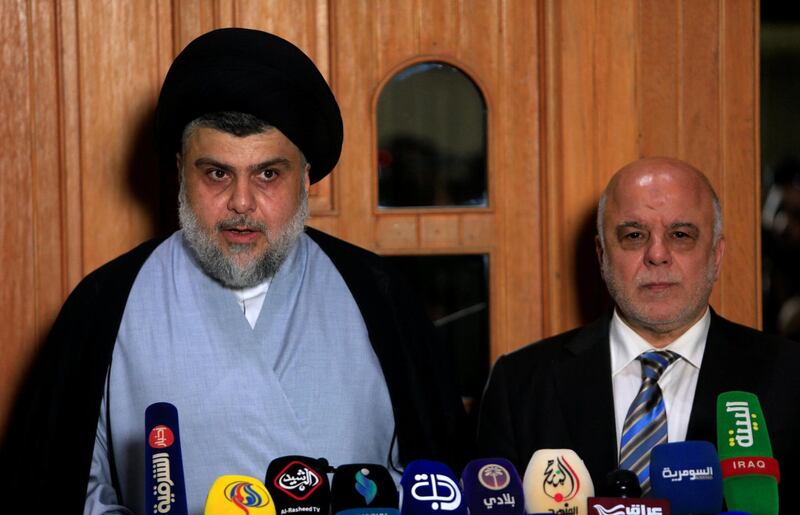A manual recount of disputed votes in Iraq's parliamentary election is scheduled to begin on Tuesday in an attempt to end controversy over the results and a political deadlock.
Iraq's next administration cannot be formed until the election results are ratified by the supreme court. In the meantime, Prime Minister Haider Al Abadi will head a caretaker government after parliament failed to extend its term because of a lack of quorum in its final session on Saturday.
The recount has been a contentious issue as leaders of political blocs negotiated in recent weeks to form a coalition with a parliamentary majority.
The outgoing parliament voted last month to hold a nationwide manual recount, but a panel of judges in charge of the recount said it would be carried out only in areas where there were complaints of fraud.
The counting will be conducted by local electoral offices in seven provinces where there were numerous complaints – Kirkuk, Sulaimaniya, Erbil, Dohuk, Nineveh, Salahuddin and Anbar.
Votes cast overseas in Iran, Turkey, Britain, Lebanon, Jordan, the United States and Germany will also be counted again.
The counting will be done in the presence of representatives from the United Nations, political groups and the candidates affected, the judges said.
Excluded from the recount is Baghdad, where a warehouse holding half of the city's ballot boxes went up in flames last month in an incident Mr Al Abadi described as a "plot to harm the nation and its democracy".
Analysts said they do not expect the recount to change the number of seats won by rival lists, but it could alter the rankings of candidates within the same lists.
"I think that the post-ballot confusion will deepen the country's depth of scepticism towards Iraqi politics and the ruling classes," Fanar Haddad, senior research fellow at the Middle East Institute at Singapore University and an expert on Iraqi politics, told The National. The element of doubt raises the possibility of another "consensus government", he said.
"Rather than trying to untangle this mess and rather than creating real winners and losers [government and opposition], Iraq's political elites may conclude that the path of least resistance is to have everyone seated at the table."
_______________
Read more:
[ Sadr City seethes over Iraqi politicians' neglect ]
[ One killed in car bomb near to ballot box site in Iraq's Kirkuk ]
[ Iraq hangs 13 extremists to avenge civilian killings ]
_______________
Nationalist Shiite cleric Moqtada Al Sadr's electoral alliance with the communists won the majority of votes as Iraqis seeking change in the country pushed out entrenched political figures.
Iraq has had three parliaments with four-year terms since dictator Saddam Hussein was toppled in the 2003 US-led invasion. The May 12 general election was held just five months after the government declared victory over ISIS, the extremist group that seized large areas of northern and western Iraq in 2014.
Iraq is now building a border fence to stop ISIS militants entering from Syria.
"Ten days ago we started to set up a barbed wire security fence with surveillance towers along the border with Syria," said Anwar Hamid Nayef, spokesman for the Iraqi border forces in Anbar province.
The barrier, which is equipped with thermal cameras and drones to detect infiltrators, runs north from the town of Al Qaim, which Iraqi forces retook from ISIS in November.
The insurgent group remains active in northern Iraq, carrying out sporadic ambushes, assassinations and bombings in ethnically-mixed provinces including Kirkuk and Diyala.
Iraq's air force has carried out a series of air strikes against ISIS inside Syria.
_______________
Read more: Family of Iraqi election worker murdered in Diyala home invasion
_______________






